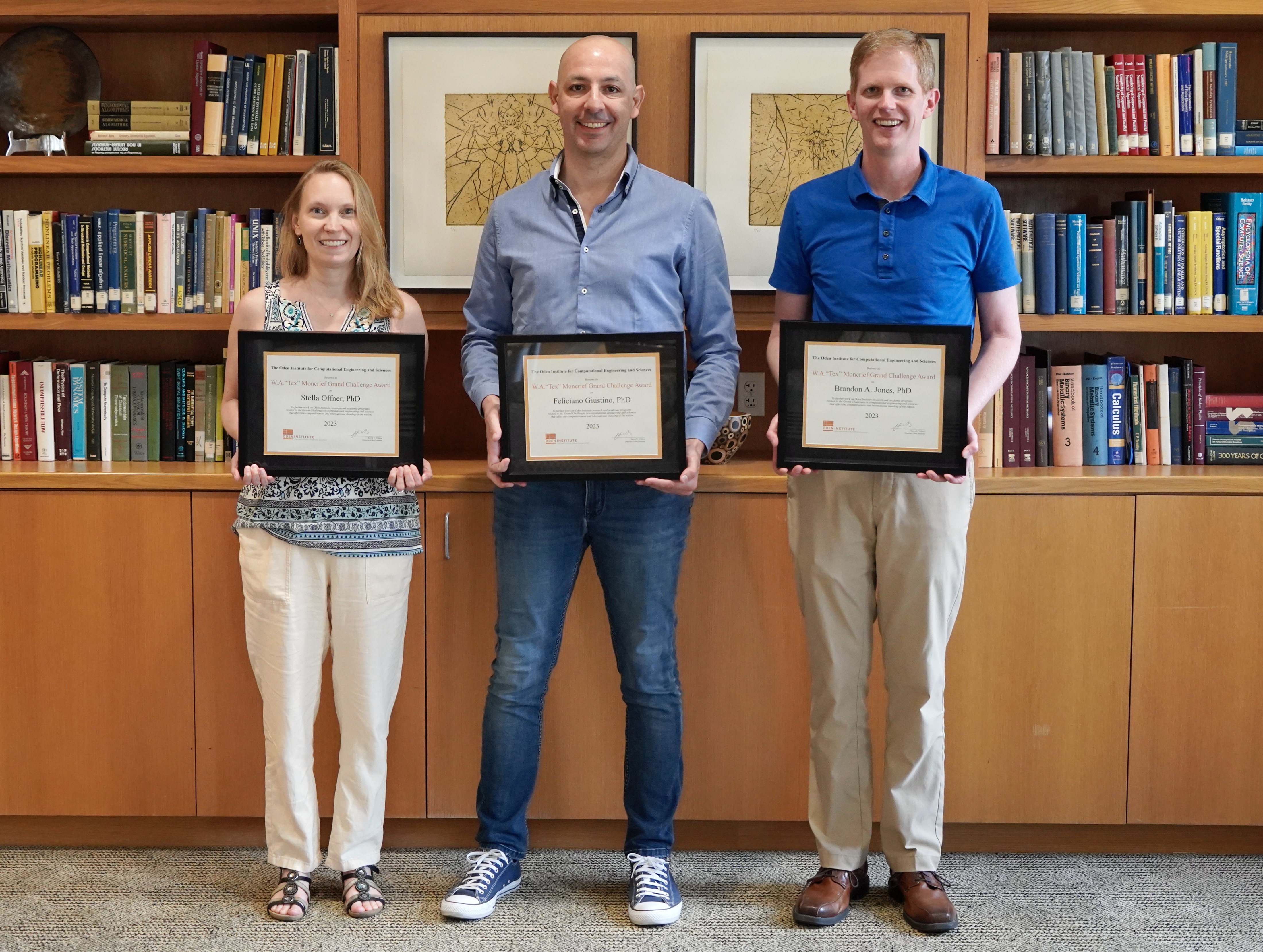Feliciano Giustino, professor in the department of Physics, will use his award to develop and deploy quantum simulation methods for the design of radically new materials underpinning energy-efficient information and communication technology (ICT). To enable sustained and sustainable growth of big data without compromising climate targets in the years to come, the power consumption by ICT must be reduced drastically. In this project, Giustino aims to use atomic-scale quantum simulations and massively-parallel supercomputers to create new materials for energy-efficient ICT on an atom-by-atom basis. Quantum simulations have emerged as an extraordinarily powerful tool for designing new materials and predicting their properties with unprecedented precision. To improve and expand the predictive capabilities of current methods, he plans to develop novel quantum simulation techniques and high-performance computing algorithms for calculating charge transport coefficients of three-dimensional and two-dimensional materials. Giustino will use these new developments to design two-dimensional semiconductors for energy-efficient nanoscale transistors, and oxides for energy-efficient neuromorphic computing via artificial synapses.
Brandon Jones, assistant professor in the department of Aerospace Engineering & Engineering Mechanics, will use his award to develop physics-informed methods of splitting the domain of random inputs for propagation of orbit-state uncertainty in cislunar space. As near-rivals race to establish a permanent presence on the Moon, Jones hopes his project will help the United States act quickly to develop and implement new surveillance capabilities for Space Domain Awareness (SDA). Accurate prediction of a satellite’s translation state and associated uncertainty is essential to tracking anthropogenic space objects for SDA. While particle methods will work, their runtime can be expensive and their use in orbit determination and object tracking can be problematic. Instead, this project will consider physics-informed approaches to splitting the input domain, thereby breaking the larger problem into more tractable sub-problems. Jones will carefully determine the appropriate measures of nonlinearity to identify the possibly multiple directions of splitting and how to best divide along each. Existing methods of non-Gaussian uncertainty propagation will then be used with each sub-domain with the intention of producing a tractable approach to uncertainty propagation in cislunar space.
Stella Offner, assistant professor in the department of Astronomy, will use her award to explore one of the most fundamental questions in astrophysics: what sets the masses of stars? The story of a star’s life is written at birth: its initial mass determines how long it will shine, whether it is likely to host a habitable planet and how it will eventually die. Telescope observations show the distribution of initial stellar masses is surprisingly similar across our Milky Way galaxy and others like it. However, why stars have the masses they do remains unsolved despite decades of research. Advances in both computational and statistical methods have enabled fresh approaches to this problem. This project combines state-of-the-art simulations of forming stars with recently developed neural network architectures to predict pre-stellar gas evolution. Offner will train and test Fourier and Markov neural operators using simulations and then apply them to recent radio observations of star-forming regions to predict the prior and future evolution. Offner aims for this study to produce a novel, general method that will allow researchers to identify the subset of gas that goes on to form stars and thereby reconstruct the earliest phases of stars like our own Sun.
